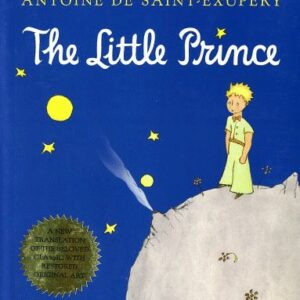Sustaining Air
$34.95
| Title | Range | Discount |
|---|---|---|
| Trade Discount | 5 + | 25% |
- Description
- Additional information
Description
The biography of a poet seminal to postwar American poetry
The poet Larry Eigner (1927–1996) was a key figure in New American poetry, which grew out of the Black Mountain School and San Francisco Renaissance, and a major influence on the Language poets. Eigner also had cerebral palsy as the result of an accident at birth. It is fortuitous that the poet lived his life in two locations vibrant in both poetics and disability activism. Except for brief periods attending camp and school, he lived with his parents in Swampscott, Massachusetts, until the age of 51. Later, he moved to Berkeley, California, at the height of the disability rights movement. In the 1950s, Eigner attended Camp Jened, which later became famous in the film Crip Camp.
Bartlett’s biography covers every significant phase of Eigner’s life: his childhood and young adulthood when he began typing poems with one finger on the manual typewriter that was a bar mitzvah gift; his first publications and the maturation of his poetic interests through correspondence with poets of the era; and after his move to Berkeley, the ever-expanding circle of friends, poets, caretakers, and collaborators he established there. The result is a deeply insightful account of an utterly distinctive voice whose influence widens and deepens with each new generation that encounters him.
The poet Larry Eigner (1927–1996) was a key figure in New American poetry, which grew out of the Black Mountain School and San Francisco Renaissance, and a major influence on the Language poets. Eigner also had cerebral palsy as the result of an accident at birth. It is fortuitous that the poet lived his life in two locations vibrant in both poetics and disability activism. Except for brief periods attending camp and school, he lived with his parents in Swampscott, Massachusetts, until the age of 51. Later, he moved to Berkeley, California, at the height of the disability rights movement. In the 1950s, Eigner attended Camp Jened, which later became famous in the film Crip Camp.
Bartlett’s biography covers every significant phase of Eigner’s life: his childhood and young adulthood when he began typing poems with one finger on the manual typewriter that was a bar mitzvah gift; his first publications and the maturation of his poetic interests through correspondence with poets of the era; and after his move to Berkeley, the ever-expanding circle of friends, poets, caretakers, and collaborators he established there. The result is a deeply insightful account of an utterly distinctive voice whose influence widens and deepens with each new generation that encounters him.
The biography of a poet seminal to postwar American poetry
Jennifer Bartlett is the author of four books of poetry. With Sheila Black and Michael Northen, she coedited Beauty Is a Verb: The New Poetry of Disability. Bartlett’s poetry, nonfiction, and curatorial work has appeared in the New York Times, Poetry Magazine, Typo, and many other places. With George Hart, she edited Momentous Inconclusions: The Life and Work of Larry Eigner.
“Readers of Larry Eigner have eagerly awaited Jennifer Bartlett’s biography of the poet, and based on my reading, it was worth the wait. This is not a critical biography that attempts to justify Eigner to current literary and cultural theory, but one that hews closely to the poet’s life story by drawing extensively on correspondence and interviews with fellow poets and family members. Although Sustaining Air is about a literary figure, it is also a disability narrative about a poet whose cerebral palsy exerted a powerful influence on his life and work. Bartlett’s understanding of disability issues and her own personal experience of living with disability give her special insight into Eigner’s capabilities—and difficulties.”—Michael Davidson, author of Invalid Modernism: Disability and the Missing Body of the Aesthetic
Additional information
| Dimensions | 1 × 6 × 9 in |
|---|









